After we had wandered into the local village of Dragizhevo we finished yesterday on the terrace of Camping Veliko Tarnova’s restaurant. My first draft beer since the ferry from Italy to Greece two months ago went down very well, followed by some good, hearty Bulgarian food.
Today we had intended to explore the local city of Veliko Tarnova. I know the name is the same as the campsite but the large city is actually 11km away. A clever move on the part of the campsite owners, because I expect anyone searching for camping in the city will find their website. Not many people are going to be searching for camping in Dragizhevo, which is a tiny village!
However, yet again, rain stopped play. The forecast was not propitious so we decided to put our trip off for a day. So instead we went for a longer walk around nearby Draghizhevo. The general feel of the village is much better than the first village we camped in Bulgaria. There are a few houses falling down and others in a poor state of repair, but most are reasonable and there are nice communal areas, many funded by the EU, like a childrens’ playground and outdoor gym area for adults. Anyone who read my rant about the poor quality of wifi in rural England compared to tiny Greek villages, the same applies in Bulgaria! How does a tiny rural village in Bulgaria, full of Soviet era vehicles and tumbledown houses, manage to have superfast wifi, whereas as pretty villages in Europe’s second largest economy still have to rely on a dial up connection. It is a mystery to me.
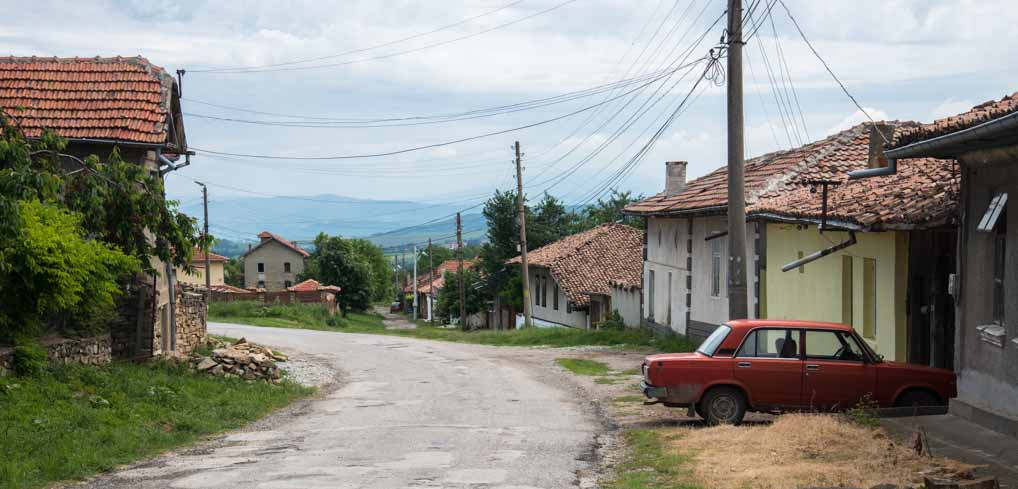
Dragezhevo
As I previously mentioned many of the cars are very nostalgie for someone, like me, brought up during the cold war. Those Ladas, Skodas and the like may have been a joke in the west, but many of them have outlasted their capitalist counterparts.
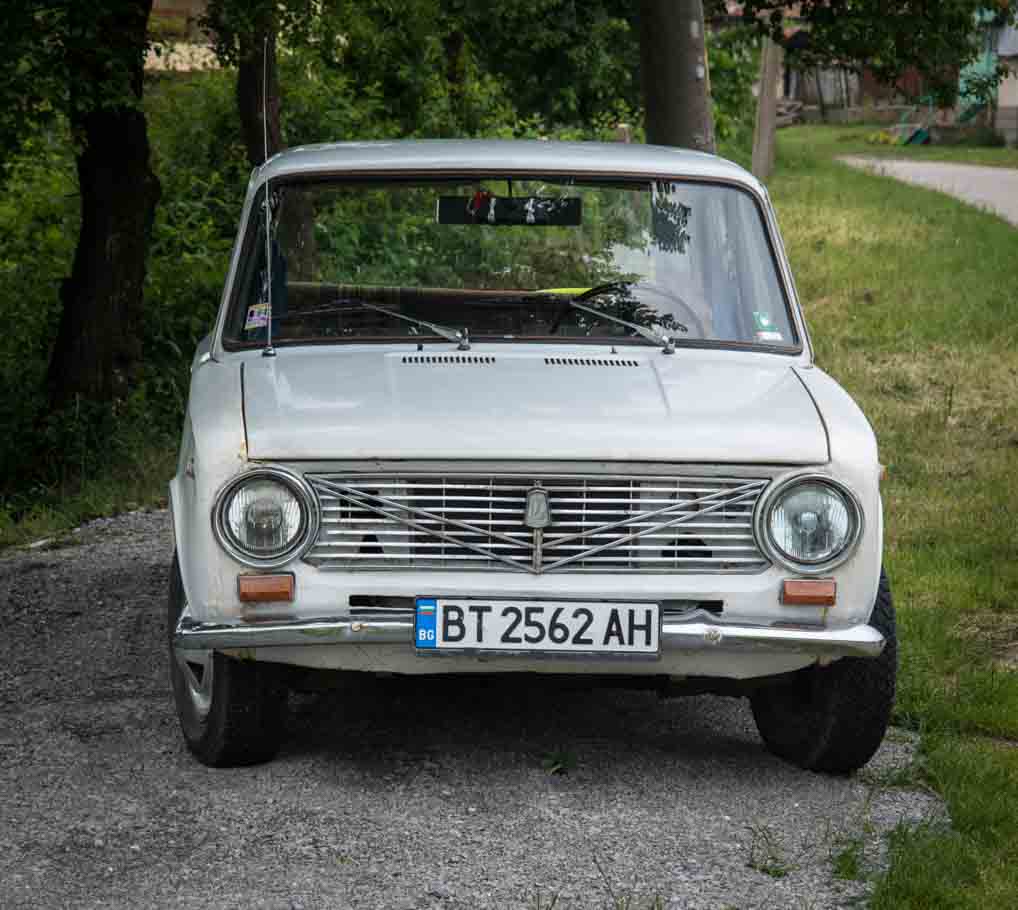
Take that Austin, Triumph, Rover et al. I’m still going strong!
We have noticed all around Bulgaria the habit of pinning a small poster containing the photo and brief details of the deceased to the front door of houses. We are unsure whether they are only pinned on the door of the departed or also those of their friends and relatives. I would estimate that nearly 50% of houses in Dragizhevo has a poster of this sort, so I suspect the latter is the case. They are rather touching, with the photo of the deceased often taken as a young man or women, many quite formal, probably for identity cards or other official documents.
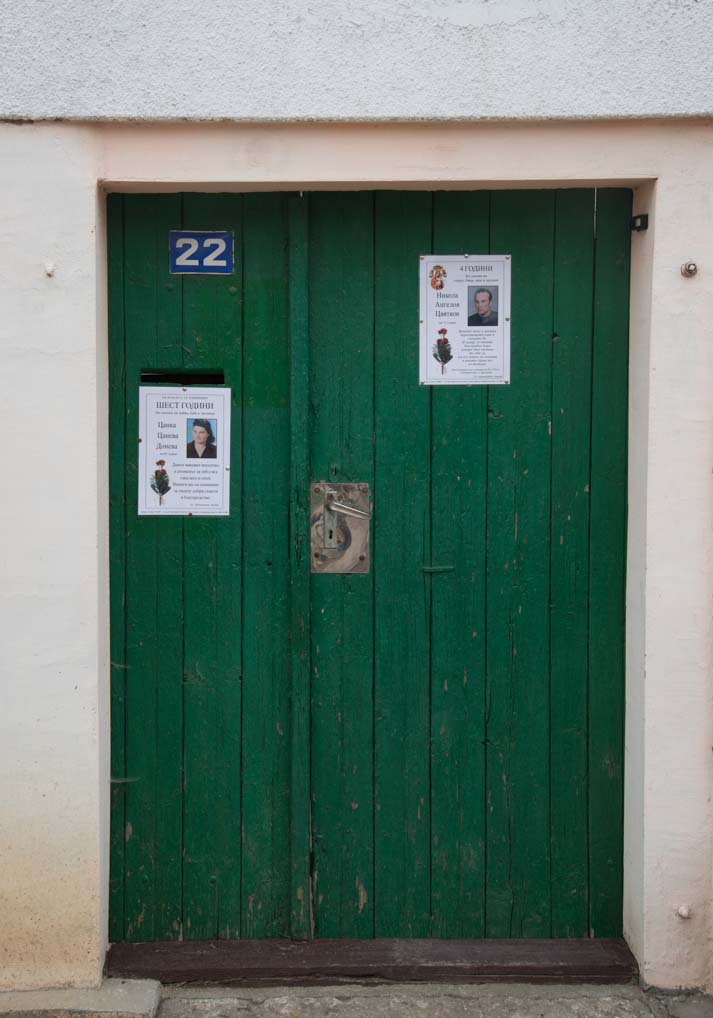
Typical front door with memorials to previous occupant, relatives, friends???
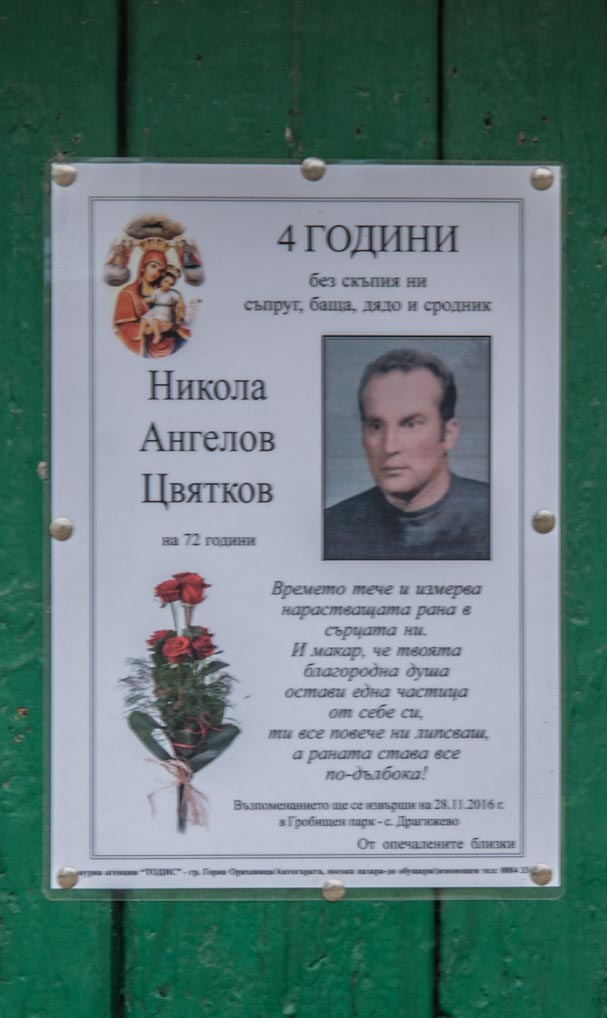
Close up of a poster of the deceased. It has a cold war feel to it – or am I getting carried away with communist imagery?
While looking for somewhere to buy bread in the village I made the classic mistake of jumping to incorrect conclusions based on someone’s appearance. As I ascended the stairs to what looked like a grocers I came face to face with a largeish lady, smoking and looking rather stern. I immediately thought of the spy films and novels of my childhood and assumed she was a fiercesome Bulgarian. As I moved past her she said to me, in a southern Scottish accent “the shop won’t be open for a minute or two, the owner has just nipped out”! My stereotype fell apart. It turned out the lady has lived in Draghezhevo for nine years and when the shop opened she went in with me to help translate .
This brings me to the title of this blog. When Nick and Nicky bought the land for Camping Veliko Tarnovo they were the only Brits in the village. However when they returned a few years later to build their house and campsite there were 14 houses in Draghezhevo owned by British people. In the wider area around Velikovo Tarnovo there are now over 1,000 British ex-pats. There are obvious attractions like ultra cheap housing, cost of living and summer climate. But Nick said to me there is also the fact that the area looks like the English countryside. One result is that the campsite restaurant often has British customers drinking a beer or eating. The restaurant even does does some British food and on Sunday morning I saw a man with formal black shoes, shirt and tie*, tucking in to a full English, while a fat cigar smouldering in the adjacent ashtray.
Oh to be in England now that spring is here!**
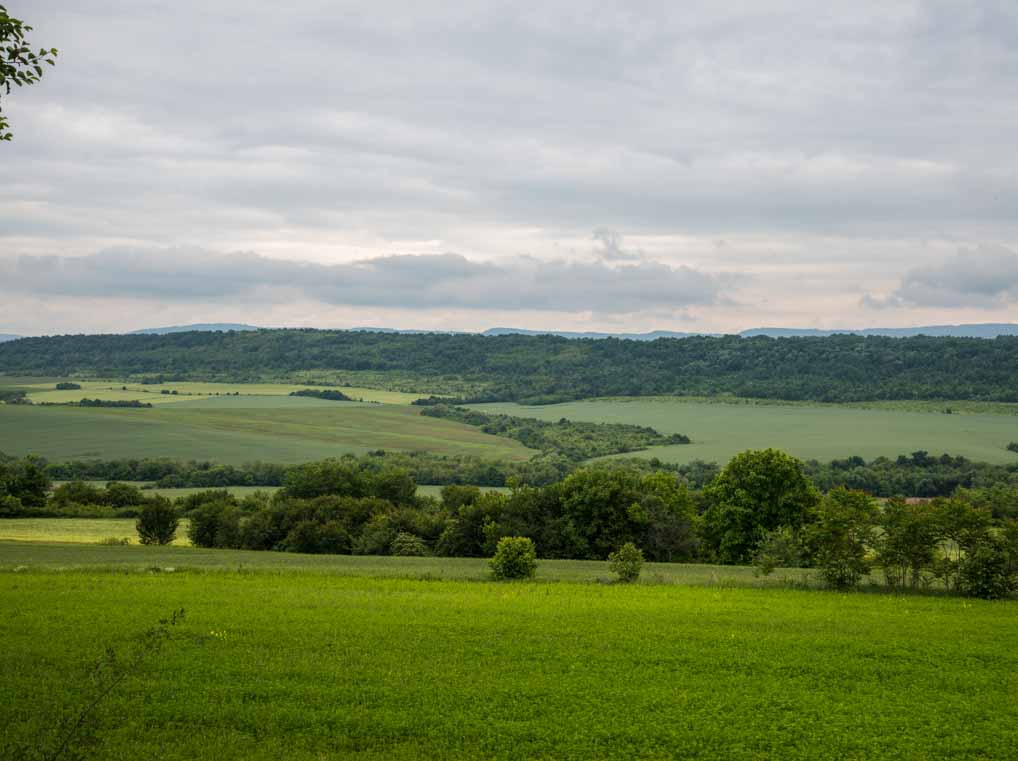
Oh to be in England….
* Given my mistake over the Scottish lady today, the man with the shiny brogues was probably Bulgarian!
** My apologies to Robert Browning. I know it’s “Oh to be in England now that April’s there”, but he does mention May later in the poem, so spring seemed a better fit for the blog!
